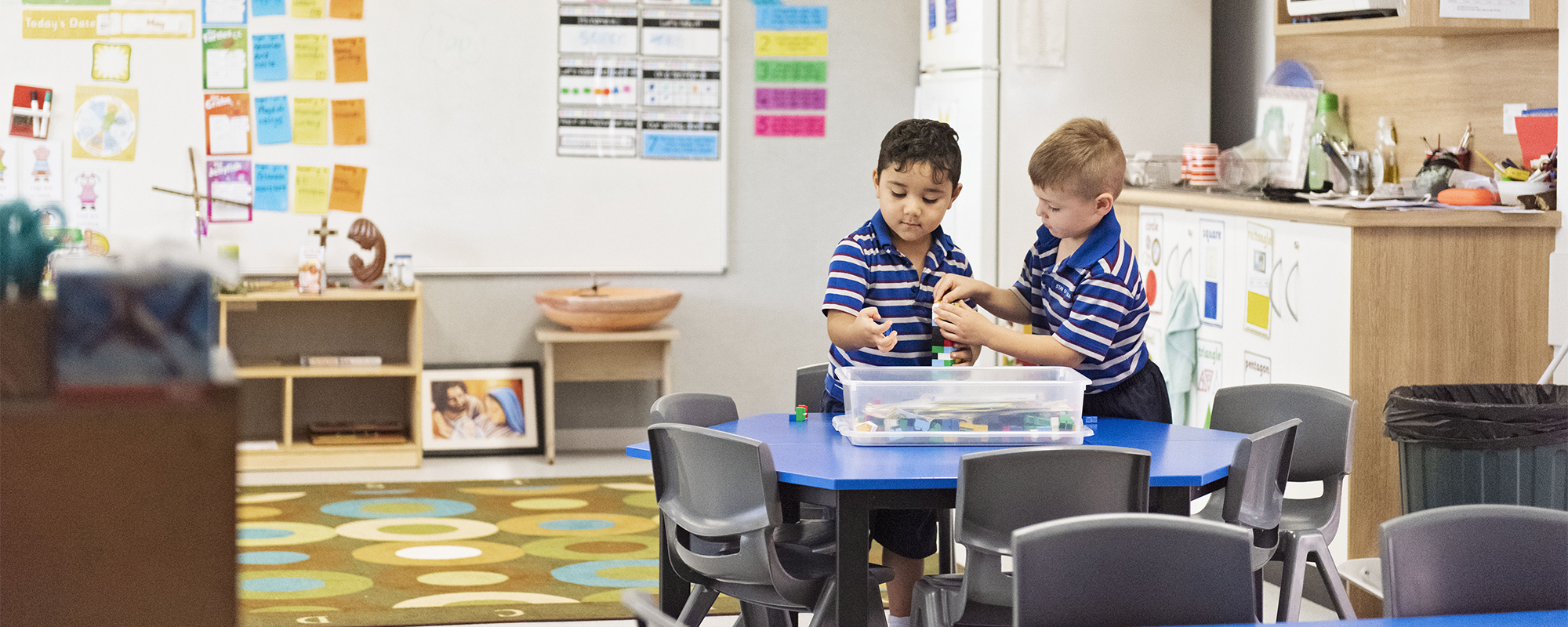
Student Wellbeing
Catholic Education acknowledges the relationship between health and education. Healthy children are better able to learn, and higher educational achievement is strongly associated with better health (The Queensland Centre for Mental Health Promotion, Prevention and Early Intervention, 2010).
Mental Health and Wellbeing is defined as “a state in which every individual realises his or her potential, can cope with the normal stresses of life, can work productively and fruitfully and is able to make a contribution to his or her community” (World Health Organization, 2014).
Wellbeing should permeate all aspects of school life and learning. Schools do this by engaging with students, staff, parents/carers, and their communities to:
- build a positive, safe learning environment and culture
- improve educational outcomes of students
- support health
Wellbeing encompasses nurturing the self, giving to others, and building/connecting with community. It relates to the whole person and the interconnectedness of physical, cognitive, cultural, spiritual, social/emotional and psychological/personal dimensions within a person.
Schools build the foundations for wellbeing and lifelong learning through curriculum, embedding wellbeing into various subjects like; Health and Physical Education (HPE), Science, Student Protection and Personal and Social Development. Explicitly teaching and modelling social and emotional skills, values and expectations for behaviour also support student wellbeing.
Schools facilitate collaborative and productive partnerships with and between members of the school community as well as other valuable external partnerships and resources.
Star of the Sea School Counsellor
As part of our commitment to caring for the health and wellbeing of the whole child, Star of the Sea has a school counsellor that works to support the emotional and social development of our students.
Why school counselling?
At different times families and children may benefit from our counselling service. Counselling is the process that occurs when a student and counsellor set aside time to explore issues or concerns.
These concerns might include stress, illness, grief and loss, or significant change at home. At school, the student may require support with goal setting, decision making, learning difficulties, anxiety, anger, attention, self-esteem, building resilience and negotiating friendships. A school counsellor can assist children and families by providing short term support and strategies to help at school and home and providing advice regarding longer term, external support as required.
Working in partnership
Parents are seen as integral to the school counselling process. Research indicates that whilst children benefit from counselling, the gains are even greater when parents are involved. This is why, from the beginning, the counsellor will speak with you about your concerns and observations of your child.
The counsellor then arranges sessions with your child throughout the term to provide support and strategies. The frequency of sessions could vary from weekly, fortnightly or as needed. The information discussed in these sessions is confidential, but key themes and take-home messages are communicated to you, as you are their main support outside of school. Throughout this process, parents and carers are encouraged to collaborate with the counsellor to discuss the progress of their child.